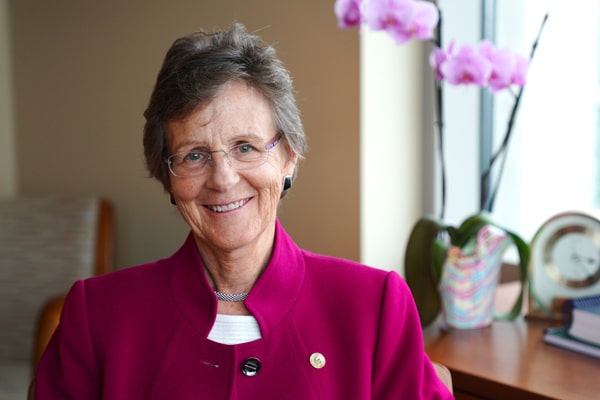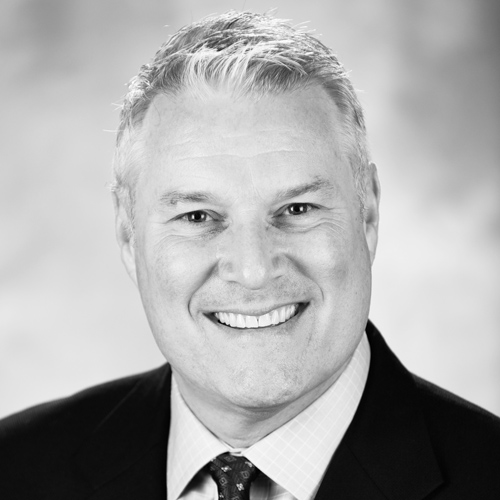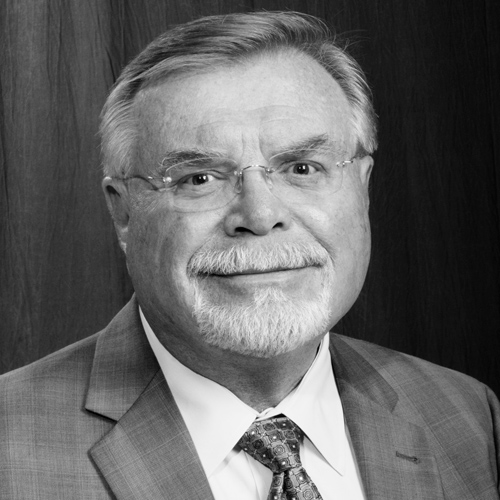Jeanette Schreiber is integral to the University of Central Florida (UCF) College of Medicine’s development and expansion. As associate vice president for medical affairs and chief legal officer, she plays multiple parts.
She has been responsible for legal and compliance, helping to create an infrastructure that supports all of the medical school functions. She has also built a self-insurance program. And she’s a leader in the medical affairs division, with responsibility for strategic and business initiatives, which includes launching the development of a new university hospital and community programs in population health sciences, health IT, and physician practice transformation. It’s a role that encompasses her passion for both law and social issues.
After thirty years exploring the legal side of healthcare, her current position may have been a long time coming, but the seeds were planted decades earlier, during her childhood. While growing up in Orlando, Florida, Schreiber’s father was a lawyer dedicated to helping those in the greatest need. Her mother was a fierce social advocate who worked with mothers who couldn’t afford day care, eventually starting a social service agency that became a model for communities across the country.

It was the late 1960s, and her home was often buzzing with conversation among the many community activists who gathered there. The house was like an energy center for people who wanted to transform the community, and Schreiber soaked it all up.
At Emory University, Schreiber studied psychology and then pursued a master’s in social work at Florida State. It was the beginning of a period of enlightenment that would eventually lead to her carving out exactly the career she wanted.
“I learned so much about the issues in our society at school,” she says. “I saw how much need and misery and injustice there was. I also learned about the impact of policy, and given my interest in law, it was easy for me to see that if I could work with law and policy, then I could have a greater impact at a community level by combining law and social work.”
After working for a year at a law firm, she decided to go to law school. Once there, she realized the extent to which her father had passed on to her the skills of a lawyer.
“Growing up with my father, I learned to think like a lawyer,” she says. “I didn’t know I had it, but I found that there was a sense of analytical logic, an ability to use language creatively that was second nature for me.”
At Harvard Law, she began to focus on healthcare, which she says was just then becoming a legal specialty. She loved that it was an area that impacted every stratum of society and that law and policy were crucial in transforming it in a way that it could more positively affect people’s lives. So she decided to become a healthcare attorney.
Out of law school, Schreiber joined a law firm in Connecticut, Wiggin and Dana, that had a health law practice. She became a partner and was there for more than twenty years, working with hospitals, health systems, home-care agencies, and state medical societies. During her time there, she was the primary outside health law counsel for the Yale New Haven Health System. She was able to look at issues surrounding medical ethics that were just coming to the fore, such as the right of a patient to refuse resuscitation. She also worked on regulatory and corporate matters, health legislation and policy, health information technology, and joint ventures and affiliations, and she handled care and payment issues.
“I realized that law is not a static thing,” she says. “It has to be interpreted and applied. You can help people by making law a tool rather than an impediment. We wrote law in many situations at a state level. Whenever there was a problem, one of the major state associations we worked with could develop legislation to address it. I loved it because I got to be impactful.”
After twenty-four years of law firm practice, she finally made the decision to go in-house when the opportunity at UCF came up. Not only was the role perfect for her, but it also brought her back to her native Florida.
“The shift was not intended to be a career-path change as much as a life change,” she says. “My goal professionally at that point was to see how I could take all the experience I had in Connecticut and use that to add value to my home community in Central Florida.”
Before moving back, she took the Florida Bar and became board certified in health law. To better prepare, she interviewed people in health systems and law firms in the state. Right when she began her job, UCF was preparing to build its medical school, which has become the culmination of Schreiber’s lifelong desire to make an impact.
“By building a medical school and medical center, in an era when healthcare is changing so much, I have a chance to do innovative things and add value in healthcare to the community,” she says. “It might have looked like a crazy career change, but there was method to it. I felt very blessed.”
Photo: Suhtling Wong-Vienneau


